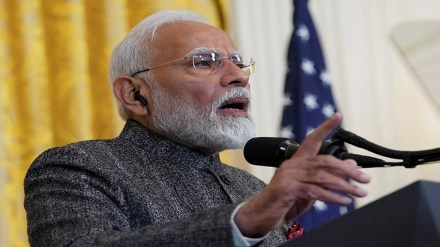Prime Minister Narendra Modi during a press conference with the US President Donald Trump in Washington restated India’s firm stand on illegal immigration. He stressed that the country is ready to take back its citizens staying illegally abroad and highlighted the need for a joint effort to pull down human trafficking networks.
PM Modi made it clear that India has no objection in accepting their citizens who are illegally staying in the United States. ‘’If there are Indian citizens who are staying illegally in the United States, we are ready to take them back,’’ he stated. He underlined that India has always been responsible towards its citizens and would ensure their safe returns once their nationality has been confirmed.
Foreign Secretary Vikram Misri shared details on the discussions between Trump and Modi related to Illegal immigrants. As quoted by ANI, ‘’They committed to improving avenues for legal movement of students and professionals and facilitating short-term tourist and business travel, and have also committed to aggressively handle and address illegal immigration and human trafficking. Both the sides are obligated in taking decisive action against elements that threatens public and diplomatic safety and security.’’
Along with extradition, PM Modi also underlined the significance of eliminating human trafficking networks that take advantage of vulnerable individuals. He stated, ‘’We need to destroy the human trafficking network.’’ He also pointed out how many people get trapped by the traffickers who persuade them by making false promises and then end up leaving them stuck in the foreign land.
Misri also further mentioned that there is also a commitment to strengthen law enforcement regarding this issue, especially from our perspectives in view of recent events that have taken place. This statement comes amid rising concerns related to illegal immigration.
The discussion between PM Modi and President Trump underlined the growing cooperation between India and the US and on the issues related to immigration, law enforcement and human rights.
